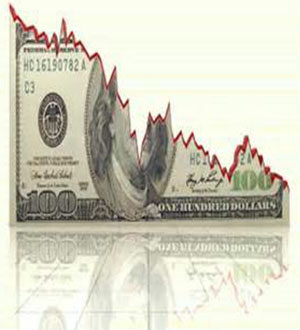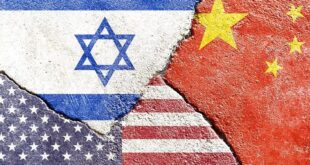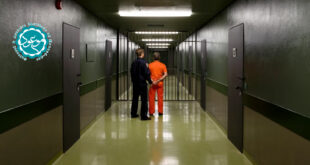What is important is that our basic indicators such as gold and currency reserves and our balance of payments are still at a good level. This makes it possible for us to control the situation without needing to resort to extraordinary measures. Let me say again too that we have no intention of introducing capital controls.
We place great importance on developing a favourable business environment and spreading best practice in working with investors at the regional and municipal level. The main thing is that businesspeople and investors, including our foreign friends, are noticing the positive changes themselves. The international experts have also recognised our efforts. Russia has had a two-fold rise in its ranking on the well-known Doing Business rating since 2010.
To attract investors, reduce risks, and co-finance projects, we will use development institutes and also some of the reserves we have built up in our sovereign funds – money from the federal National Welfare Fund and other resources. We will improve access to credit resources. We are completing work on a mechanism for project financing and we plan to support major long-term projects.
Starting next year, a new organisation, the Industrial Development Fund, will be responsible for pre-bank financing of companies. We plan to invest significant resources in modernising the Baikal-Amur and Trans-Siberian railways and see them as the base for a transcontinental bridge between Asia and Europe.
These railways’ reconstruction is linked in with development of port facilities in the Far East, introduction of a railway traffic management system based on the latest technology used by GLONASS, Russia’s global navigation system, and the creation of the so-called land ports – transport and logistics centres. All of this will make it possible to considerably speed up transit of goods.
Let me add too that we are actively at work on developing the Northern Sea Route’s infrastructure. It will become a modern, safe and economically competitive transport corridor with a particular focus on goods from the Asia-Pacific region countries.
We also offer our partners cooperation in developing energy and telecommunications infrastructure. These are priority areas for the entire Asia-Pacific region today. Friends and colleagues, by combining our efforts and capabilities we could achieve benefit all round.
Russia is showing an example of investment openness in the sensitive energy sector. Let me remind you in this respect of the big Sakhalin oil and gas projects (Japan has a 30-percent stake in the Sakhalin-1 project and a stake of more than 22 percent in the Sakhalin-2 project, for example) and our agreements with China on building infrastructure for natural gas supplies. We are also examining possibilities for our Chinese partners to acquire stakes in some of our biggest production assets.
Ladies and gentlemen, Russia’s location in Eurasia determines its role as a major factor for bringing Western and Eastern civilisation closer together, and we therefore want to strengthen our relations with all Asia-Pacific region countries and play an active part in building a free trade system and in economic and investment cooperation.
We are open for dialogue and discussion and for practical work too. We are ready to carry out joint programmes in the Asia-Pacific region and are sincerely interested in seeing businesspeople from this region come to Russia and achieve success there. We have huge, truly inexhaustible opportunities for work together.
In conclusion, let me invite you, ladies and gentlemen, to the next St Petersburg International Economic Forum, which will take place next year on June 18-20. I hope that we will continue the substantial dialogue on all issues of mutual interest and will open the way for new and interesting big projects.
Thank you for your attention.
QUESTION: Mr President, you mentioned the establishment of the Eurasian Economic Union, which will come into force on January 1, 2015. Could you talk in more detail about the concrete opportunities that will open in this regard to APEC businesspeople and APR nations?
VLADIMIR PUTIN: We have talked about this a great deal. It is one of our biggest integration projects in the post-Soviet space. I have already said that its participants are the Russian Federation, Belarus and Kazakhstan. Now, Armenia is in the final phase of joining this Union. This has essentially happened already: Armenia’s Accession Agreement has been signed.
For a nation like China, the numbers I provide may not seem impressive, but nevertheless, for example, for the European region, this is a market of 170 million people. What’s most important is that all these nations (at least, Russia and Kazakhstan) have large, not to say enormous, mineral resources and transport opportunities. Belarus brings us closer to the European market. The scientific potential is very high. But what’s most important is that the principles laid into the foundation of the Union’s work are built around the framework requirements of the World Trade Organisation, fully meeting them.
As I said in my address, we have transitioned to a higher phase of interaction and integration. We are removing customs regulation almost entirely between member states in this integration process. We are transitioning to the free movement of capital, services and labour. We are synchronising our tax and financial legislation and progressing to joint regulation of the financial markets.
In my view, all this creates excellent conditions for businesses to feel confident and secure working on this fairly large market. It gives them the opportunity to forecast their activities and receive good returns, to feel protected. I am referring (again, I repeat, this is a very important aspect) to the fact that the principles fully correspond with the requirements of the World Trade Organisation. We believe our partners from all regions of the world, including the Asia-Pacific region, will appreciate this very soon.
QUESTION: I would like to ask Mr President a question about improving Russian legislation.
We have business in Russia, and we would very much like to organise joint enterprises with Russia, but we have studied the Russian laws about foreign investments – in other words, investments by foreign states into Russia. It seems not everything is entirely clear, especially with regard to the fact that state authorities have very extensive powers with regard to foreign investors. Will there be any improvements in this area in Russia?
VLADIMIR PUTIN: I already said it in my address and I would like to stress this again: we feel, first, that this is one of our main objectives –namely, to create favourable conditions for investing and generally doing business in Russia. We have a whole programme of action that was developed not just by state officials, but in constant dialogue with our business community.
We have a roadmap for eliminating administrative barriers. And as I said earlier, overall, the situation is changing for the better. We have advanced significantly in the Doing Business ranking. But it’s not just about rankings. It is, of course, a matter of the practical reality.
We are talking about making it easier to register companies. We are talking about making it easier to get connected to infrastructure, first and foremost, energy infrastructure. We are talking about decreasing pressure from, to put it bluntly, the law enforcement system. All of this is constantly in our field of vision. An analysis of what is happening in the market, the feedback from the business community gives us the foundation to believe that the process is moving in the right direction.

 Mouood Mouood English Edition
Mouood Mouood English Edition



